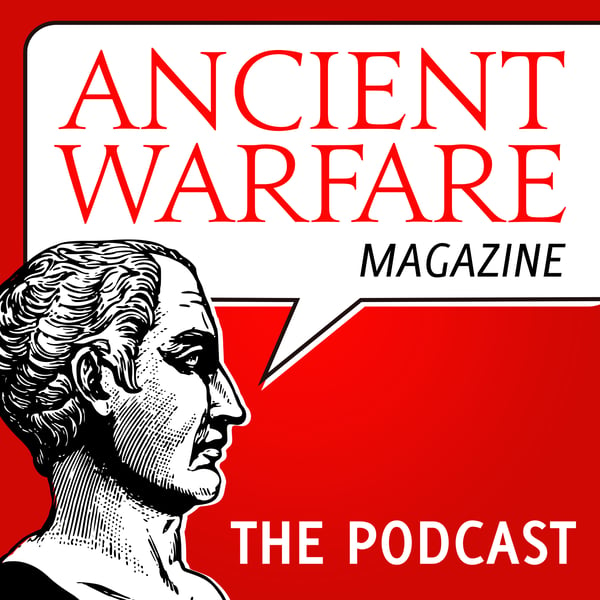AWA345 - Why didn't Rome's adversaries emulate her?
Ancient Warfare Podcast
The History Network
4.4 • 631 Ratings
🗓️ 21 February 2025
⏱️ 10 minutes
🧾️ Download transcript
Summary
Christopher asks, 'why didn't adversaries to Rome (especially on the Italian peninsula) see the methods by which Rome consistently recovered from defeat and tried to emulate them?'
Join us on Patron
patreon.com/ancientwarfarepodcast
Transcript
Click on a timestamp to play from that location
| 0:00.0 | Hi everyone and welcome to another episode of ancient warfare answers with me, Murray, your weekly fix of ancient warfare related topics, where I attempt to answer a question that you've sent in by email or postcard or commenting on a previous video or podcast and you can ask anything ancient warfare |
| 0:23.6 | related and I will attempt to answer it. |
| 0:25.9 | No guarantees. |
| 0:27.1 | Hopefully food for thought at the very least. |
| 0:28.7 | You can of course back us on Patreon forward slash ancient warfare podcast and you can back us |
| 0:33.8 | at one of three different levels, legionary Optio and Centurion. |
| 0:37.3 | And with Optio and Centurion. And with Optio and |
| 0:38.5 | Centurion, you can get a copy of the magazine either digitally for Optio or physically for Centurion. |
| 0:44.5 | And you can, of course, listen to the big podcast and you can listen to the ancient history |
| 0:48.7 | podcast these days too. Right. Now, today's question is from Christopher, and he says, why didn't adversaries to Rome, especially in the Italian peninsula, see the methods by which Rome consistently recovered from defeat and try to emulate them? Oh, nice. So it's an interesting one because I think it's actually the other way around. |
| 1:16.1 | One of the things that Rome is so good at is adopting and adapting other cultures, not only |
| 1:24.3 | military but especially in this sense, military, sense military formations ideas weaponry and using them |
| 1:31.0 | to their own advantage to the extent that they surpass the original so if we look at the conquest |
| 1:38.1 | of the italian peninsula specifically what you have is this city and then, you know, it's surrounding allies, |
| 1:48.2 | then the Latins, then the Etruscans, the Volsci, the people, all of these different cultures. |
| 1:56.4 | Rome comes into contact with them, fights them, sees that what they are doing is superior to what |
| 2:05.2 | Rome is doing at the time and then adopts it themselves. So, for instance, when you look at some |
| 2:12.7 | of the Samnite frescoes, none of them wear swords. They've got spears. |
| 2:18.2 | They've got armour. |
| 2:18.9 | They've got greaves and shields. |
| 2:21.4 | They're not carrying swords. |
| 2:23.1 | And from the very earliest time, the Roman legionary is a swordsman who happens to also have a pilum or a haster, spears or javelins. |
... |
Please login to see the full transcript.
Disclaimer: The podcast and artwork embedded on this page are from The History Network, and are the property of its owner and not affiliated with or endorsed by Tapesearch.
Generated transcripts are the property of The History Network and are distributed freely under the Fair Use doctrine. Transcripts generated by Tapesearch are not guaranteed to be accurate.
Copyright © Tapesearch 2025.

